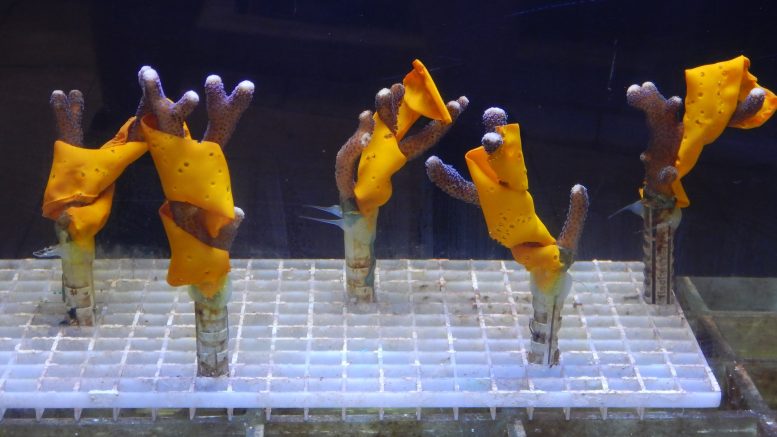
Stylophora pistillata coral covered with biomaterial during thermal stress tests. Credit: IIT/Università Milano-Bicocca
Researchers at Istituto Italiano di Tecnologia – IIT and University of Milan-Bicocca have demonstrated the efficacy of a natural substance in protecting coral from the damage caused by climate change.
A recently published study in ACS Applied Materials and Interfaces demonstrates the efficacy of curcumin, a natural antioxidant substance extracted from turmeric, in reducing coral bleaching, a phenomenon caused primarily by climate change. The research group, consisting of scientists at Istituto Italiano di Tecnologia (Italian Institute of Technology – IIT) and Università degli Studi di Milano-Bicocca (University of Milan-Bicocca), in cooperation with Acquario di Genova (Genoa Aquarium) in Italy, developed a biodegradable biomaterial to deliver the molecule without causing damage to the surrounding marine environment. Tests conducted at the Genoa Aquarium have shown significant efficacy in preventing coral bleaching.
The Impact and Cause of Coral Bleaching
Coral bleaching, under extreme circumstances, can result in the death of coral organisms, leading to devastating consequences for coral reefs. These reefs are vital to the global economy, the safeguarding of coastlines from natural disasters, and the preservation of marine biodiversity. The majority of corals coexist symbiotically with microscopic algae, which are crucial for their survival and vibrant coloration. However, rising sea and ocean temperatures due to climate change can disrupt this symbiosis, leading to coral bleaching. In this condition, corals turn white from the loss of algae and face the risk of starvation.
In recent years, as a result of climate change, this condition has affected most of the world’s major coral barrier reefs, including Australia’s Great Barrier Reef. Regrettably, there are currently no efficient methods to counteract and prevent coral bleaching without seriously jeopardizing these habitats and their associated biodiversity.
Breakthrough With Curcumin
The researchers from IIT and the University of Milan-Bicocca, together with Genoa Aquarium, have showcased the effectiveness of curcumin in preventing coral bleaching induced by climate change. This natural molecule is delivered to the coral via a controlled process using a biomaterial based on zein—a protein derived from maize. This system was developed by the researchers themselves to ensure environmental safety.
During the tests carried out at Genoa Aquarium, tropical sea overheating conditions were mimicked by elevating the water temperature to 33°C (91°F). In these circumstances, all untreated corals experienced bleaching, while curcumin-treated corals exhibited no signs of this effect. This outcome indicates the effectiveness of this technique in reducing corals’ vulnerability to thermal stress. The coral species used for this study was Stylophora pistillata, a type common in the tropical Indian Ocean and listed on the IUCN (International Union for the Conservation of Nature) Red List of endangered species.
Patent Application and Future Research
“This technology is the subject of a patent application that has been filed, and in fact the next steps of this research will focus on its application in nature and on a large scale,” said Marco Contardi, first author of the study, research affiliate of the Smart Materials group at Istituto Italiano di Tecnologia and researcher in DISAT (Department of Environmental and Earth Sciences) at the University of Milan-Bicocca. “At the same time, we will examine the use of other antioxidant substances of natural origin to block the bleaching process and thus prevent the destruction of coral reefs.”
“The use of new biodegradable and biocompatible materials capable of releasing natural substances that can reduce coral bleaching is something entirely new,” said Simone Montano, researcher at DISAT and deputy director of the MaRHE center (Marine Research and High Education Centre) at the University of Milan-Bicocca. “I strongly believe that this innovative approach will represent a significant breakthrough in the development of strategies for the recovery of marine ecosystems.”
Reference: “Biodegradable Zein-Based Biocomposite Films for Underwater Delivery of Curcumin Reduce Thermal Stress Effects in Corals” by Marco Contardi, Marta Fadda, Valerio Isa, Yohan D. Louis, Andrea Madaschi, Sara Vencato, Enrico Montalbetti, Laura Bertolacci, Luca Ceseracciu, Davide Seveso, Silvia Lavorano, Paolo Galli, Athanassia Athanassiou and Simone Montano, 27 June 2023, ACS Applied Materials & Interfaces.
DOI: 10.1021/acsami.3c01166

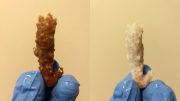
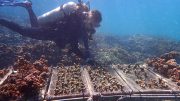
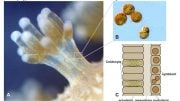
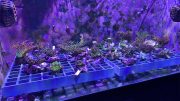
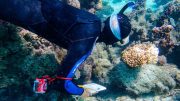
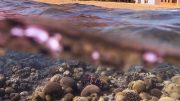
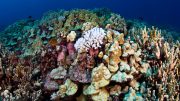

Be the first to comment on "Scientists Discover Nature’s Secret Weapon Against Coral Bleaching"